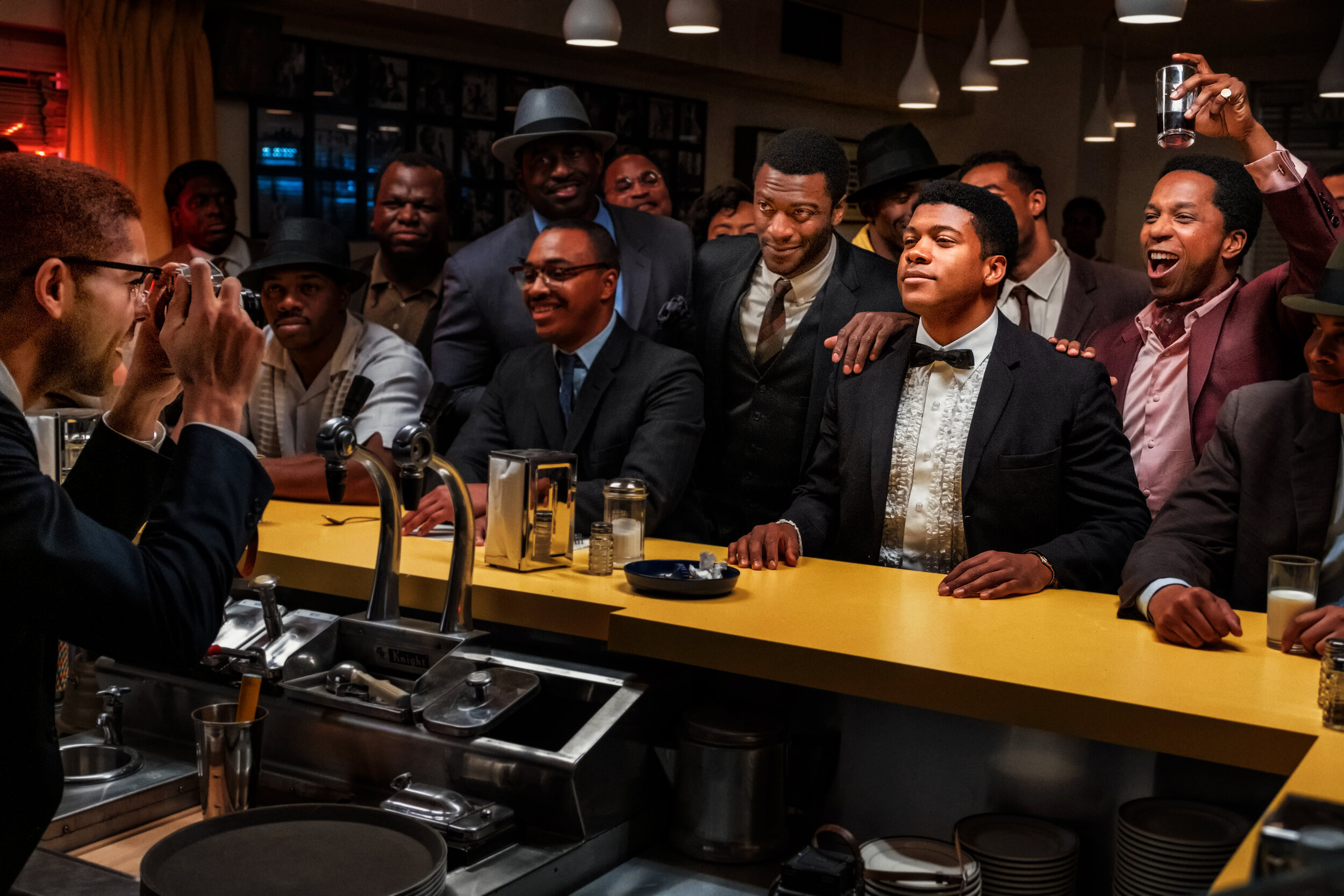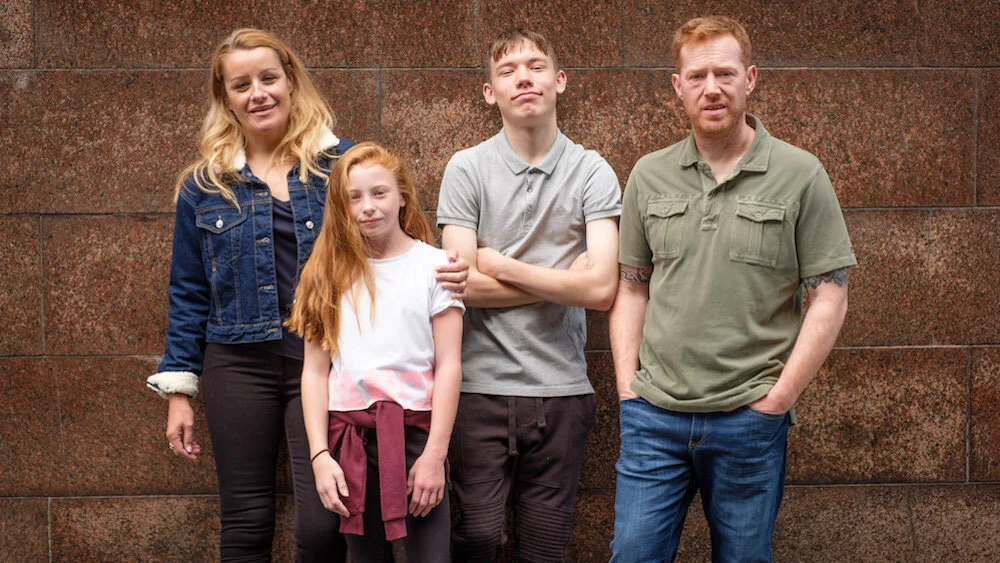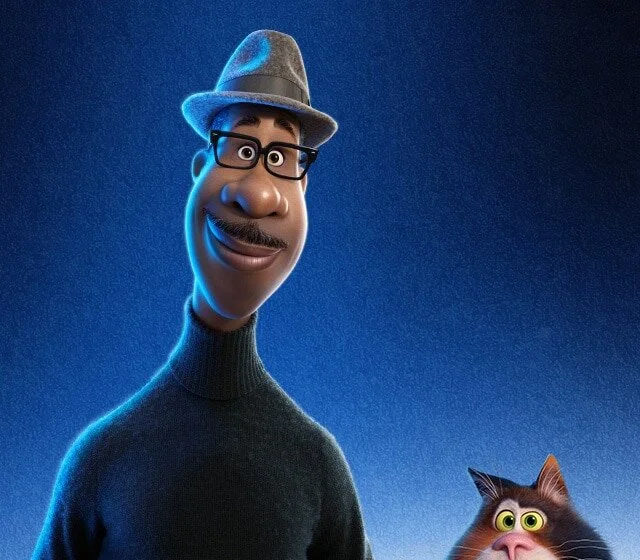Director Julia Hart’s “I’m Your Woman” lives and breathes in the 1970s, and Rachel Brosnahan helps navigate this cinematic time machine to a seedy Pittsburgh crime world. Jean (Brosnahan) finds herself on the run, crossing into the unknown without grasping the reasons. Since she’s also managing a baby in tow, Jean is more vulnerable than Bambi on the first day of hunting season. Her limited options are a microcosm of women’s rationed opportunities during that period, but co-stars Marsha Stephanie Blake and Arinze Kene play hopeful allies. Jean’s journey towards possible independence – as well as far-out costumes and vibes - make “I’m Your Woman” a groovy and grimy 2-hour getaway.
Julia, Rachel, and Marsha Stephanie graciously hosted a Zoom call with the Phoenix Film Festival and other media outlets for an informative and enjoyable chat. The ladies spoke about 70s crime drama influences, Jean’s struggle with motherhood, and much more!
“I’m Your Woman” is available to stream exclusively on Amazon Prime.
Q: Are there any particular examples of female characters from 1970s crime dramas that were perhaps overlooked in those stories but were inspirational in developing this movie?
JH: I have so many answers. Tuesday Weld’s character Jessie in “Thief” (1981) was definitely the biggest influence. I highly recommend that movie. It’s Michael Mann’s first film, and it’s a masterpiece. Diane Keaton’s Kay in “The Godfather” (1972), Theresa Russell in “Straight Time” (1978), (and) Ali MacGraw in “The Getaway” (1972).
MacGraw’s character is (a) rare (example) in 70s cinema where the female character is brought into the action. (It’s) exciting to see how (director Sam) Peckinpah did that, but I think the coolest thing about all of those characters is they’re really interesting. The men who wrote and directed those characters and the women who played them were able – even in a handful of scenes – to create these really complex, interesting women. I was just bummed that they were only in a few scenes. I want to see a whole movie of characters like that.
Q: Rachel, can you talk about the feedback that you’ve received about this movie?
RB: The messages that have meant the most are from women who (were) surprised (by the movie). “I’m Your Woman” does come with a lot of big set pieces, but it’s also deeply rooted in this character study of Jean. (The film) recognizes quiet women who have struggled with motherhood.
(Jean) is a woman who doesn’t immediately connect with (her) child, (but) so much of her journey towards recognizing her capability and her power is through (the) relationship with (him). I’ve received a number of messages from women who felt really moved by seeing this woman’s journey and her internal life play out on-screen in a way that I think (makes) them feel more powerful.
Q: Marsha Stephanie and Rachel, what did you enjoy about playing Teri and Jean?
MSB: (Teri has a family), and they are living a very normal life. (Teri and Cal (Kene)) are raising their son to be a good person. They both have jobs. No one’s on drugs. No one’s in jail. I love that. For a lot of black characters and a lot of people (who) I’ve played, we don’t get to be normal. We don’t get to imagine a life that is just living. We don’t get to imagine the American dream in that way, in a way that’s just regular. Even though we’re meeting (Teri and Cal) at a different time in their lives, we get that’s what they had. And you have two black people in love. Unless there’s heavy drama associated with (a relationship), you don’t get to see two people who are just simply in love.
RB: Ordinary women’s stories are worth telling and worth centering. Most women are ordinary. Most people don’t decide or desire to change. Some (women) come out of the womb (and are) ready to change the world and break the glass ceiling. Most people change because something extraordinary happened to them that forced them outside of themselves and outside of their lives. So, I’m so grateful to filmmakers like Julia who recognize that and who recognize that not only are these stories valuable, but they are really important. There are so many more people who deserve to have their stories told and to see themselves on-screen.
Q: Can you talk about the costumes that helped create the world of the 1970s?
RB: (Costume designer) Natalie O’Brien is such a fantastic storyteller and had so beautifully thought out the evolution of Jean’s journey, through what she chose to look like versus what she had to look like, because (her) circumstances changed. All of those clothes felt so different to wear, and (Natalie and I) talked about that a lot. When we first meet (Jean), she’s cut out of a 1970s fashion magazine, but (her clothes aren’t) necessarily her. She doesn’t really know who she is. When she’s on the run, she has nothing but the clothes on her back, a bag full of money, and a baby. Putting those clothes on really changed the way – as Jean – that I moved through space.
MSB: Natalie is very insightful. She also understands that for actors, sometimes putting the clothes on really solidifies for you who your character is. I had a lot of conversations with her about shoes, and she heard me. She got what I wanted, and she figured out what I was trying to convey.
Q: How did you explore the options about Jean facing physical dangers while on the run?
JH: (I wanted) to up the stakes by having Jean be a mother. I often joke that I end up writing my worst nightmares into my scripts as a form of therapy. I used to have this terrible fear of home invasion, and then I wrote “The Keeping Room” (2014), and the whole thing is a home invasion. I’m not afraid of that anymore. It helps.
But there’s nothing more terrifying than when you’re in a dangerous situation, but on top of that, you have this completely helpless being, who can make a lot of noise at any moment, needs to eat, (and) needs their diaper changed. The baby doesn’t know that it’s in a dangerous scenario. It doesn’t know that there are men after him and his mother. It’s scary enough being a new parent. There’s enough uncertainty in new parenthood when you’re not on the run. So, what would it be like setting Jean in that position, as she’s navigating this whole new world?
RB: (Jean handling a gun for the first time) felt real on the page in a way that I haven’t seen before in a genre like this one. In some films, someone gets a gun (placed) in their hand, and power surges through their veins. Suddenly, they know how to use it. I’m not super-comfortable with guns, and I think most people aren’t. If you didn’t grow up (with them), it’s not something that a lot of people are comfortable with, and Jean is someone who’s never been around guns. I appreciated (that Jean was) nervous (shooting a) gun for the first time. It scared her.
Q: You had a really intense, high-speed car chase. How much fun was that for you to be behind the wheel?
MSB: It’s my fantasy come true; however, I’m a New Yorker, so I’m not a natural driver by any means and definitely not with cars this big or this unwieldy. So, I was petrified, but once I got into it, (then) I was into it! It’s extremely exciting, and I had the most gentle director to guide me.
RB: It was a crash course in stunt driving, Stunt Driving 101!




















































































